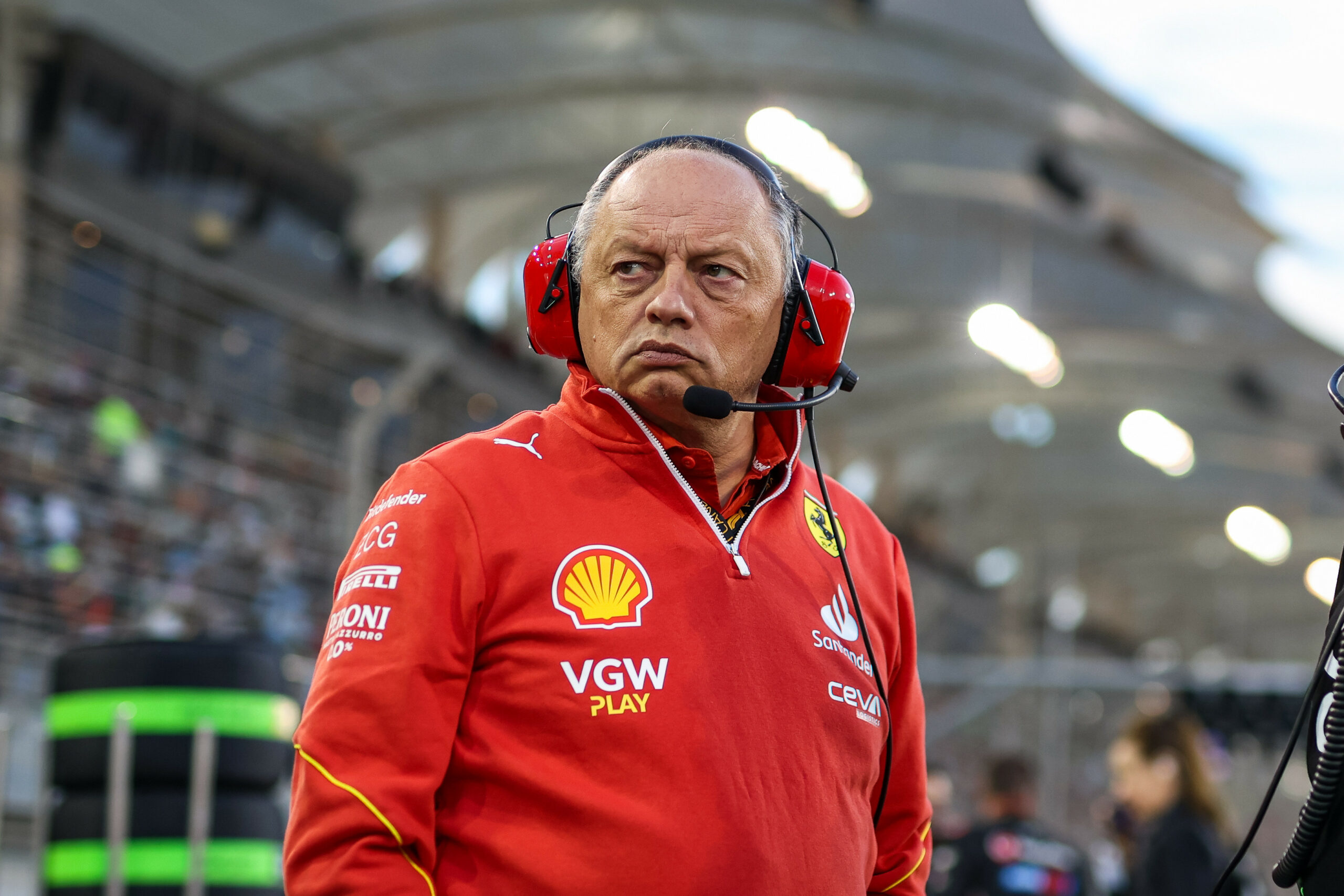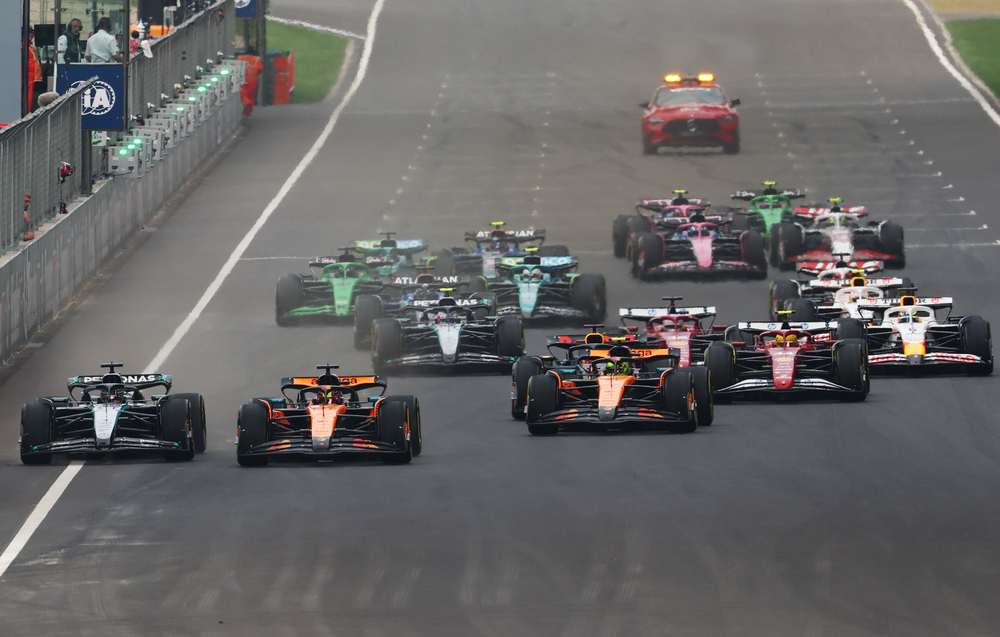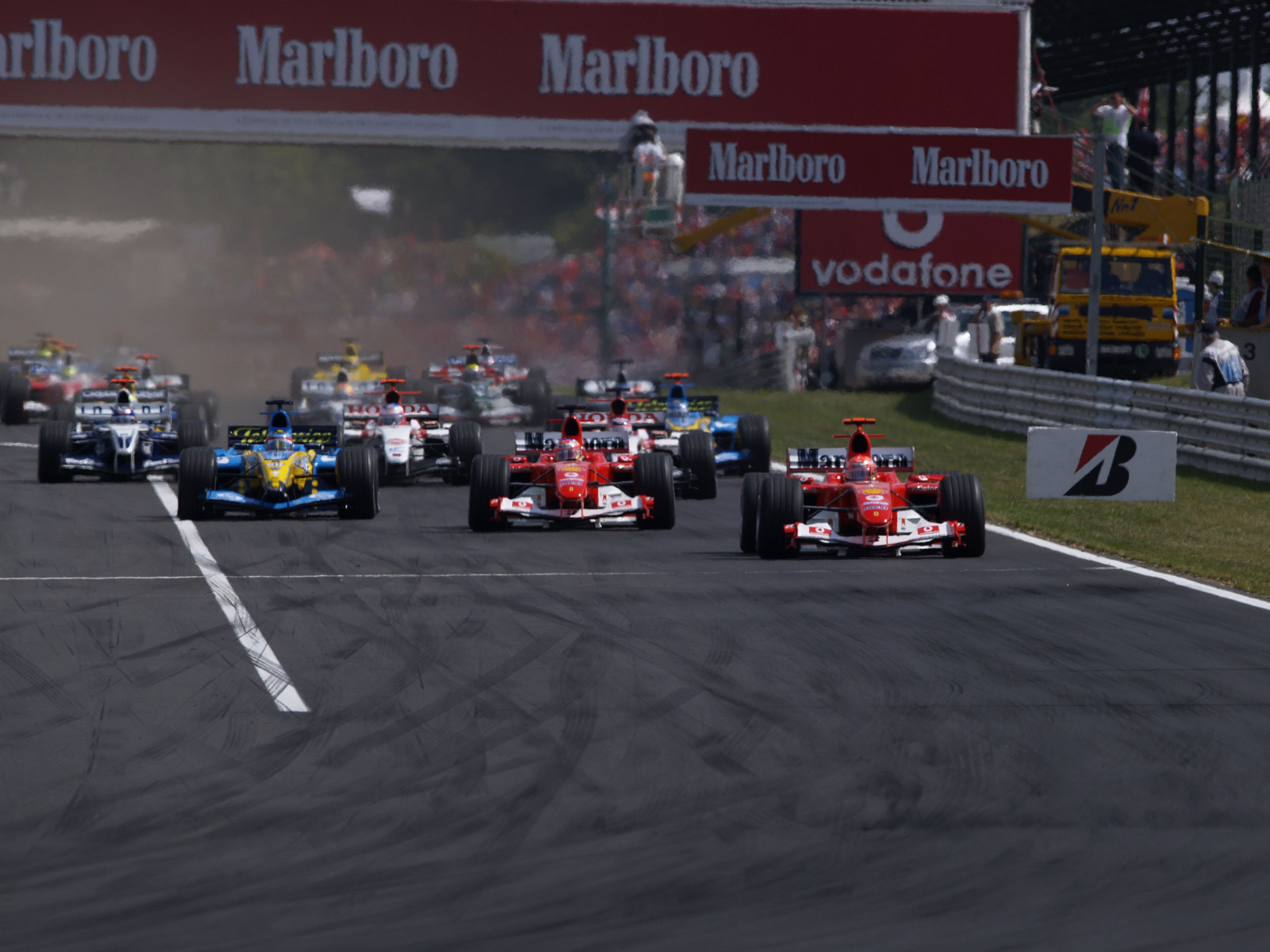In Shanghai Ferrari missed out on a podium finish for the first time this season.
It was quite a messy weekend for the team, characterised by tensions between teammates, a qualifying crash, and a noticeable lack of pace compared to their closest rivals. Given Ferrari’s consistency in the previous rounds, their underwhelming showing in China was quite puzzling.
It seems the problems identified at the previous round remain unresolved as Ferrari’s qualifying struggles continued in China. The team lost out both on Friday and Saturday, failing to qualify higher than fifth.
Despite qualifying sixth and seventh, Charles Leclerc remained optimistic that Ferrari could lean on their race pace and challenge for the podium on Sunday. Somewhat surprisingly, both drivers proved less effective than McLaren’s Lando Norris, who hadn’t even expected to be in the fight for third going into the race.
The Ferrari duo later conceded that fourth and fifth at the flag was the best they could do.
Speaking after the race, Fred Vasseur admitted it was far from a clean weekend for his team.
“Well, it’s not a good help to lose a position at the start, but at the end we are behind Perez and Norris at the start, and we finish behind them also at the end of the race,” he said. “I think if we lose something today, it’s more on the last stint.
“Carlos was a bit unlucky with the timing of the pit stop because he pitted three or four laps before the VSC and then the safety car, and he was a bit scared to do a very long stint with the last set of hards. And he was a bit conservative at the beginning, but he did very well to manage the long stint like this.”
Vasseur reiterated that their qualifying struggles are costing the team on race day, preventing them from challenging for higher positions.
“If we miss something today, it’s to start from too far away on the grid, for sure,” he said. “And this is more yesterday.
“Today we were a bit less performant, I think, on the hard than on the medium. The medium was under control, and I think that we were in a good position at the end of the stint of medium. But we lost a little bit the ground with the hard.”
Regarding Ferrari’s strategy, Vasseur said, “Before the safety car (…) we were hesitating between one stop and two stops. As we had a very low deg on the medium, we were expecting to do one stop only. But then with the safety car, it changed completely the physiognomy of the race. It was almost a sprint race with arms for everybody.”
“From the beginning of the season, we know that our pack is very, very tight,” he continued. “And perhaps that Max sometimes is a bit faster.
“But we have a pack with six or seven cars in one tenth. (…) And when you start from P9, the race is much more difficult because you have dirty air in the first laps. Even if you are faster, you struggle to overtake. Because if you don’t have the big gap, you damage the tyres in the first ten laps, and then you are dead.
“I think it’s really a matter of putting everything together. We didn’t have a clean weekend on our side. We made too many mistakes. And we know that in this group, if you don’t do the perfect job, you won’t be in front.”
Asked whether Ferrari’s disadvantage in Shanghai was track dependent or setup related, Vasseur admitted: “It’s more a matter of extracting the best of what we have.
“And honestly, we are speaking about development, but first, as a team, we have to get the best from what we have.
“We didn’t do the job this weekend on this, and it’s not that the situation is changing massively from one weekend to the other, it can be a bit track-related, tarmac-related. This weekend I think it was very difficult to understand the tarmac, also due to the format, because we did a stint with soft on Friday morning, and then we went to the race with medium, and we didn’t put the medium before.”





